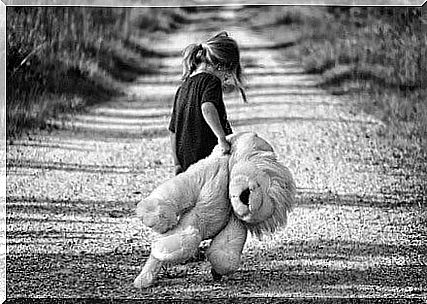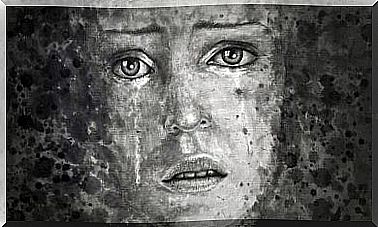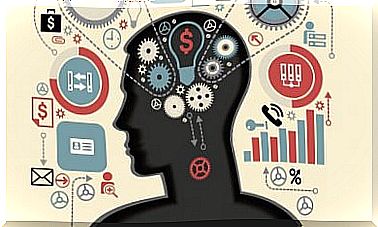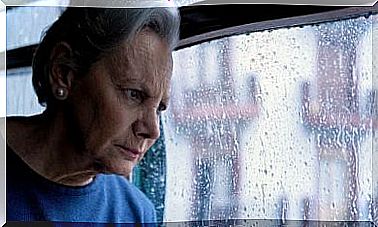The Roads To Depression

Depression, one of the most painful ills that can accompany us. The paths that lead us to this are diverse and sometimes mysterious. Depending on how we get there, we can find escape routes. Get to know them!
Depression has become one of the great problems that we usually face today. We can find ourselves immersed in difficulties of this type and not know the reasons why we have reached this point, which makes it difficult for us to solve them. But depression is not just being sad! Deep down there is a strong “feeling of helplessness or hopelessness to achieve a meaningful desire or aspiration for each one”.
What can lead to depression?
- Identification with “depressive” parents: we can develop a depressive character if our parents had this tendency. Part of our personality is configured from the identification with significant people, through which we assimilate a property or attribute of them. Parents are the main models with whom we identify, when they are depressed, we can construct a representation of ourselves as “incapable” of obtaining what we want, having identified with whoever felt this way.
This identification occurs through the depressive discourse, messages, attitudes and gestures that are received from them. Which, usually create a climate loaded with guilt and sadness. In addition, we can build a “depressing” perception of reality, about what we can expect and how to approach it, as well as the way we interpret the events of our life. According to this possible origin, it is necessary to question and change many of those ideas and habits that we have developed. We need a deep process of change, in which we learn to build different ways of living, experiencing new dynamics, with different levels of intensity, that help us create skills that we could not develop.
- The “persecutory anxieties”: we can develop a depressive problem due to the constant and excessive fear that significant people will “punish” us, either through aggressions, or by withdrawing their affection. Many times these anxieties favor that when trying to protect ourselves, we isolate ourselves, inhibit our desires, avoid taking risks or daring to experiment, which can impoverish our interpersonal relationships, hinder our life projects and alter the way we see ourselves and the reality, which leads us to depressive states.
From this, we must work our interpersonal relationships. From changing the defensive strategies that keep us in this vicious circle, to strengthening the ways in which we relate to others, trying to build secure bonds that reduce these fears.
- Guilt: We feel guilty for many reasons. One of those that can lead to depression is, for example, building an identity based on the fact that we are “bad” and “harmful”. Feeling guilty about negative events gives us a certain sense of control. If something is our fault, we have more power over it to change it. Guilt makes us “ashamed” by not meeting the ideal of what we want to be, which can lead to depression. In these cases, it is important to work on the feeling of guilt, according to each case, developing healthier alternative mechanisms.
- Own deficits: we can experience depression, in the case of feeling incapable of achieving a desire, because we do not have the intellectual, social or instrumental capacities necessary to obtain it. In this sense, we can establish ways to develop or enhance these capacities are deficient, if possible. Otherwise, it would be convenient to refocus or readjust our goals, to possible aspects that give us satisfaction.
- Narcissistic problems: when depression is linked to problems in the way we perceive and value ourselves, it can come in three ways, related to each other. First, we can have a devalued image of ourselves, which prevents us from seeing ourselves as “capable.” Second, we can have high ideals, because we have “inherited” them from a family discourse in which too much was demanded of us, or because they help us to compensate for our own feeling of inferiority. Third, we can have an extremely severe critical conscience, with excessive norms that are impossible to fulfill in order to satisfy that “ideal” of ourselves, in which “it is never enough”. According to each one, it is important to attend to the specific element of our self-esteem, which makes us feel powerless.
- The external reality: sometimes reality is really painful for us, by preventing us from achieving a significant desire, favoring the feeling of helplessness and hopelessness. For example, traumatic experiences, illness, abandonment, etc. However, reality is always perceived from our eyes, therefore, it will affect us depending on the way we do it. Faced with problems and difficulties that have a possibility of solution, it is important to guide ourselves to solve them, if they have no solution, it is necessary to attend to the consequences generated, express and channel emotions and “accept” what we cannot change.
Whether these or others are the paths that have led us to depression, there are always alternatives to solve it, even if at that moment they are “invisible” to us. Psychological support through therapy is a powerful tool that helps us find escape routes to these problems. Let’s get help!









